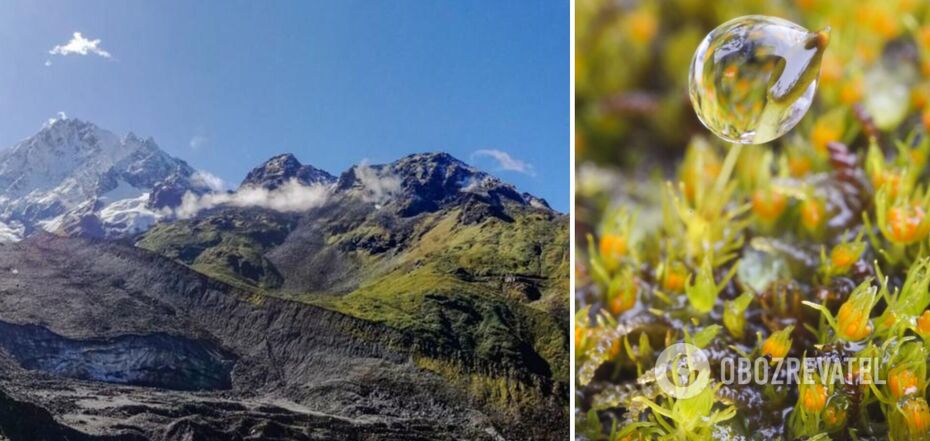News
A unique 390 million-year-old plant could become completely extinct due to global warming
Global warming is likely to kill the world's oldest moss, Takakia, which is 390 million years old. This variable organism has survived three mass extinctions that have occurred on Earth.
This is stated in a study published in the journal Cell. For 10 years, scientists have been studying the genus Takakia, which has the largest number of genes among all mosses, giving it the ability to evolve rapidly.
According to the scientists, an 11-year study conducted in the Himalayas showed that the moss is well adapted to the highlands, resistant to extreme cold and intense ultraviolet radiation. But the rapid rise in global temperatures is leading to a reduction in the range of this moss. What's more, scientists have found that despite its ability to rapidly change genes, it is losing its range faster than any other moss around it.
Takakia consists of only two species of moss, they grow separately in the United States and Japan, but only on the Tibetan plateau in the Himalayas do both species occur together.
This plant is unlike any other: its evolutionary shoot branched off from other bryophytes about 390 million years ago.
As explained by Yikun He, a plant geneticist at Capital Normal University in Beijing, Takakia's evolutionary position among plants is similar to that of the platypus among mammals. Just as the platypus has many strange, not-quite-mammalian traits - such as egg-laying and a beak - Takakia has a bunch of features that make it not quite like other plants, such as feathery leaves and a lack of pores to control the flow of oxygen and carbon dioxide.
Ralf Reski, a plant biotechnologist at the University of Freiburg in Germany, notes that it is so different from other mosses that "for a long time it was unclear whether it was even moss at all."
For 11 years, the researchers collected samples, analyzed genomes, collected data on the surrounding ecosystem, and compared modern samples with 165 million-year-old fossils.
The researchers found that although Takakia's genome is average for bryophytes at just over 27,400 genes, it has the largest number of rapidly evolving genes.
This speed of evolution was necessary when the Himalayas began to rise 65 million years ago, exposing the mosses to lower temperatures and more ultraviolet light. So Takakiya had to adapt to the new conditions.
The study found that this moss has the ability to withstand solar radiation by producing "large amounts of metabolites, such as flavonoids and polyunsaturated fatty acids, for protection." It also has genes for more efficient DNA repair, which is an important defense against harmful rays.
Takakia is also adapted to extreme cold and can remain dormant under snow for eight months of the year and then grow and reproduce in a three- to four-month period.
But even this ability to evolve is likely not fast enough to save this moss from climate change on Earth.
Over the 11 years of the study, the scientists documented that the average temperature in the region has increased by about four tenths of a degree Celsius. This has caused Takakia's coverage to decrease by about 1.6% per year - faster than four other local mosses.
The researchers predict that by the end of the 21st century, Takakia's habitat will be critically limited and by then the world's oldest moss could be extinct.
"Takakiya has seen dinosaurs come and go. He has seen us humans come and go. Now we can learn something about resilience and extinction from this tiny moss," Reski summarized.
Subscribe to OBOZREVATEL's Telegram and Viber channels to keep up with the latest developments.



























